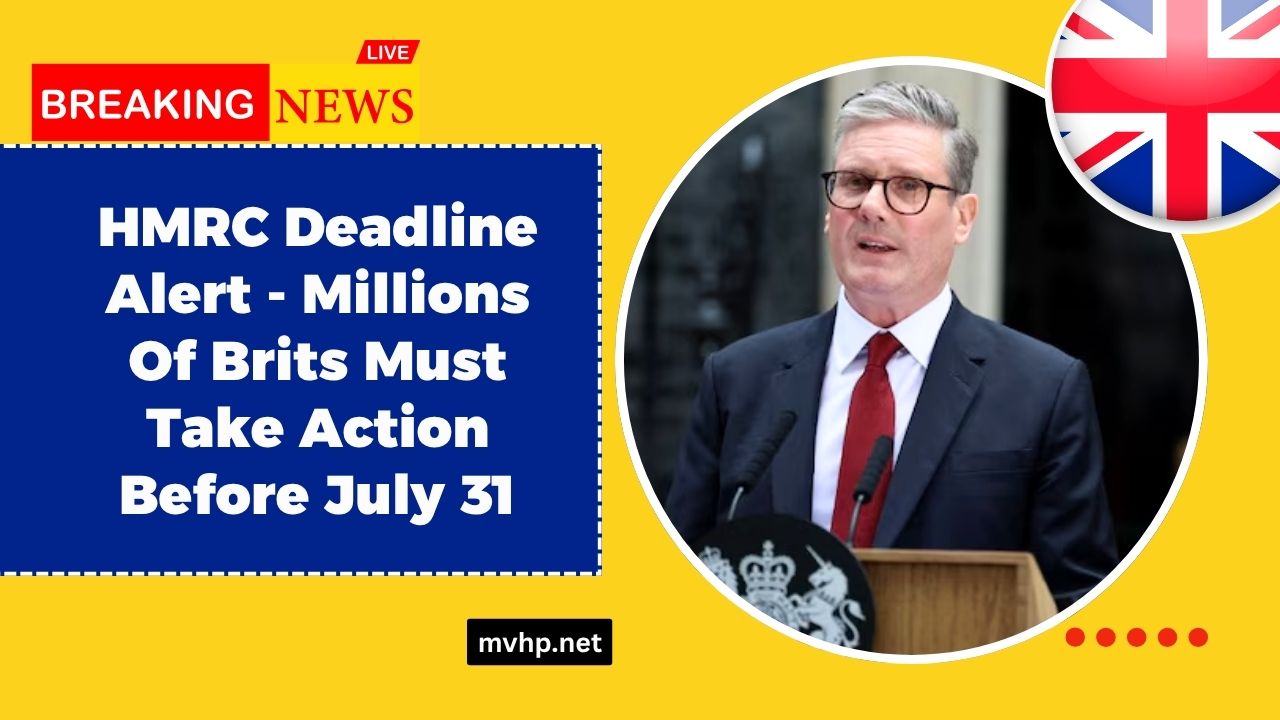Self-employed Brits and those who complete a Self-Assessment Tax Return are being urged by HMRC to act before July 31, 2025, to avoid hefty fines.
This mid-year payment deadline, referred to as the “second payment on account,” could cost taxpayers up to £1,600 in penalties if missed.
What is the July 31 Deadline?
The HMRC payment on account system requires self-employed individuals and others who pay tax through Self-Assessment to make two advance payments toward their tax bill each year:
- January 31 – First payment on account
- July 31 – Second payment on account
These payments are based on the previous year’s tax bill. They help the government collect revenue more steadily and ease the burden of a large single annual payment for taxpayers.
Who Needs to Pay?
You are required to make a payment on account if:
- Your Self-Assessment tax bill is over £1,000
- Less than 80% of your tax was already collected at source (e.g., via PAYE)
This includes many freelancers, sole traders, and those with side incomes.
Miss the Deadline? Here’s What It’ll Cost You
Failure to pay the second installment by midnight on July 31 results in escalating fines.
| Delay Period | Penalty Amount |
|---|---|
| Missed Deadline (initial) | £100 |
| 3 months late | £1,000 |
| 6 months late | £1,300 |
| 9 months late | £1,600 |
Over 1 million people missed the January 2025 deadline, compared to 600,000 in 2022, indicating rising non-compliance.
How to Pay Your Tax Before July 31
To ensure you’re covered:
- Log in to your HMRC Self-Assessment account
- Review your balance due.
- Select “Pay by bank account”
- You’ll be directed to your bank app or website.
- Complete the payment to HMRC Shipley.
It’s crucial to confirm the payment has been processed before the deadline. Keep your reference number handy and retain proof of payment.
What If You Can’t Afford to Pay?
If full payment isn’t possible, HMRC offers support through its Time to Pay arrangement.
Eligibility for Time to Pay:
- You must owe less than £30,000
- Your Self-Assessment must be up to date
- You need to prove financial difficulty
If approved, this allows you to spread payments over several months.
For help, call HMRC’s Business Payment Support Service on 0300 200 3825 as soon as possible.
Why This Deadline Matters More Than Ever
With the cost of living rising, many self-employed individuals are already under financial strain. Missing this deadline not only triggers penalties, but may also affect your ability to claim certain government benefits or credits linked to your income status.
Plus, late payments could result in interest charges being added on top of existing penalties.
Stay Compliant: Tips to Avoid Future Trouble
- Set calendar reminders for both January 31 and July 31
- Use accounting software to track estimated tax liability
- File your tax return early to know what you owe in advance
- Seek professional help if your tax situation is complex
Don’t Delay – Act Now
The July 31 HMRC deadline is fast approaching, and millions of self-employed Brits are at risk of financial penalties. If you owe more than £1,000 in Self-Assessment tax and haven’t yet paid your second payment on account, now is the time to act.
FAQs
What is a “payment on account”?
A payment on account is an advance payment toward your next Self-Assessment tax bill, due in two parts each year.
Can I avoid penalties if I pay late but communicate with HMRC?
Yes, HMRC may reduce or waive penalties if you contact them in advance and set up a Time to Pay plan.
What happens if I overpay through payment on account?
Any overpayment is refunded or credited toward your next tax bill.




